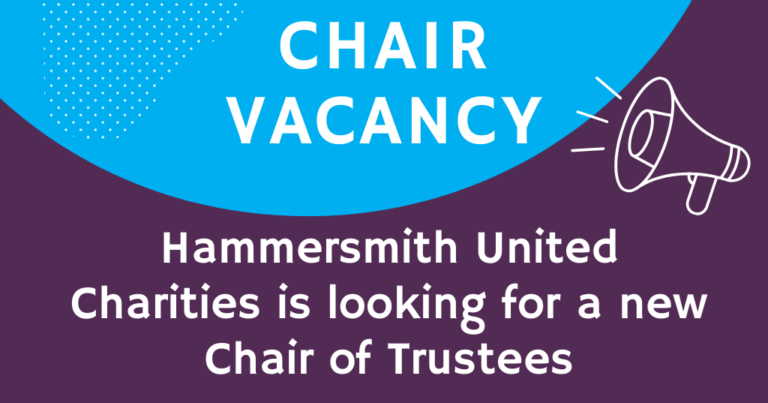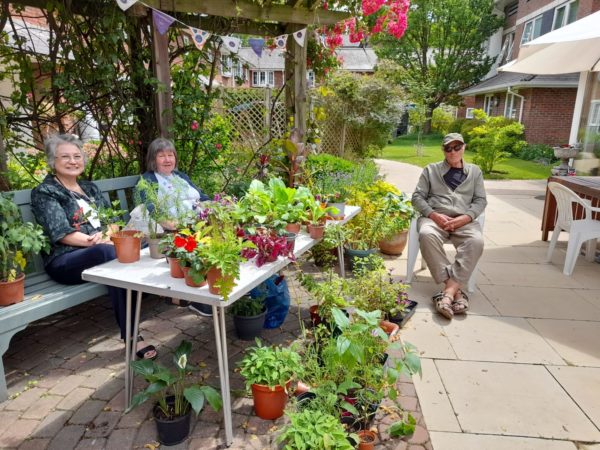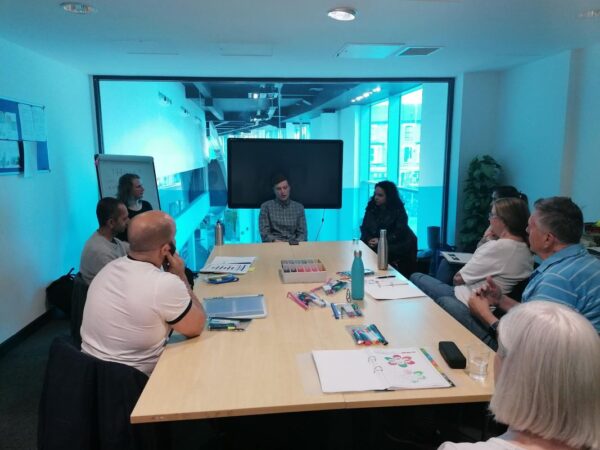“Some will benefit, but some will lose out”
Recovery from the pandemic is beginning, but it’s not straightforward and is particularly unequal in London.
By data analyst Christabel Cooper, Labour councillor and Hammersmith United Charities trustee.
The success of the UK’s vaccination program has meant that after 18 long months we finally can start thinking about a return to a (relatively) normal life after the Covid pandemic. Despite the deep recession caused by the restrictions needed to contain the virus, most economists are predicting a fairly rapid return to pre-pandemic levels of activity.
Yet Covid has financially impacted different people in very different ways, and the recovery is also likely to be uneven. Millions have seen their income fall. That might be because they accessed the furlough scheme, which only paid part of their wages, or because they have lost their jobs altogether.
Despite this, the pandemic has increased the wealth of many who carried on working. That’s particularly true for higher earners, who tend to spend more of their money on non-essential services such as eating out, entertainment and holidays. Opportunities for these activities have been limited over the last 18 months, saving households across the UK £150m, the Bank of England estimates.
In London, the impact has been very unequal. Around 50% of residents have been able to work from home during the pandemic, and a significant amount of wages will have been translated into savings. This makes post-pandemic economic recovery much easier as residents with accumulated wealth start to spend (at least some of) that surplus with local businesses.
But according to the Institute for Fiscal Studies the city also lost the biggest number of jobs of any UK region last year, unsurprising given the capital’s disproportionate dependence on hospitality, entertainment and tourism – all sectors decimated by Covid. By November 2020 London had both the highest percentage of claimants for unemployment-related benefits, and the highest percentage of workers furloughed anywhere in the country. London’s unemployment rate has now fallen back as restrictions have eased, but remains above the UK average.
Nevertheless businesses and residents are generally optimistic about the future. According to the most recent London Intelligence survey from the Centre for London think tank, 50% of the capital’s residents thought their personal finances would improve over the next 12 months, versus 19% who thought they would get worse.
But even a strong economic recovery may be unable to help those who are already in an unsustainable amount of debt. 48% of Londoners said they wouldn’t be able to meet an unexpected expense of £500 from their own money, up from 44% in September 2020. 21% would have no way of meeting an unexpected expense of £500 even if they borrowed money. Private tenants in particular will face problems. The eviction ban has now ended, and the government still plans to withdraw the £20 a week uplift to Universal Credit which will hit the poorest.
Meanwhile Covid cases are still high. Around 30,000 people are day are testing positive for the virus and (at the moment) this shows no sign of dropping significantly. This has had the knock-on effect of requiring millions of people to self-isolate because they had come into contact with an infected person.
Changes to the requirements to self-isolate following contact with a Covid case may ease this ‘pingdemic’. But this comes on top of a continuing reluctance to return to previous behaviour patterns. The London Intelligence survey reveals that although residents feel increasingly comfortable about going out in Central London, over a third remain hesitant including 45% of those aged above 65. For some businesses a combination of self-isolation requirements and persisting public reluctance to resume normal activities means that they may run short of both staff and customers. That’s just as the Chancellor of the Exchequer starts to withdraw financial support in the autumn. London is set to face a difficult few months.
In the longer term, the pandemic will have an impact on the way we work and the way we shop. Undoubtedly workers will eventually return to offices, but almost certainly not in the same numbers as before. As a borough which contains both large numbers of both offices and residential areas, the impact of these changes on Hammersmith and Fulham is uncertain. Local businesses which depend on providing office workers with food, drink and other services may be badly affected. The pandemic has accelerated the decline of bricks and mortar shops in favour of online retail, and many of our retail businesses will remain vulnerable. Yet, at the same time, greater numbers working from home mean that some of our residents will end up spending more time in the borough rather than travelling into an office in Central London.
It is important that the overall economic figures do not mask the fact that while some people and businesses will benefit from the changes brought by the pandemic, others will lose out. The structure of London’s economy and population is likely to go through some painful re-adjustment, and within our borough there are still large numbers of residents who have been hit hard by the pandemic and may struggle to recover in the short term.
As a grant-making organisation, Hammersmith United Charities will continue to support local people in need as we recover together from the pandemic.
More information:
About Christabel Cooper
Christabel is a Trustee for Hammersmith United Charities, and a member of the Finance Committee. She’s also a local councillor in the London Borough of Hammersmith & Fulham, representing Fulham Reach ward. She’s an Assistant to Cabinet with responsibility for running a project to improve and to publicise the role of analytics within the council. Follow her on Twitter @ChristabelCoops.
About Hammersmith United Charities’ grant-making
We invest in the future of our community through our grants programme. We give grants to local organisations supporting people who live in our area of benefit. Find out more about our grants programme here




 Numerous studies have shown that gardening can be hugely beneficial for both physical and mental wellbeing. It’s a great way to keep fit and active, and can help to reduce sleep problems, stress, anxiety and depression. India says, “There’s a lot of evidence that being able to enjoy green space can help certain health conditions and increase life expectancy. I definitely believe having nature in our lives is good for wellbeing, even if you’re just walking through it, sitting outside or seeing it from your window. And the fact that residents know they can be involved in the space and take part in activities is so good for them.”
Numerous studies have shown that gardening can be hugely beneficial for both physical and mental wellbeing. It’s a great way to keep fit and active, and can help to reduce sleep problems, stress, anxiety and depression. India says, “There’s a lot of evidence that being able to enjoy green space can help certain health conditions and increase life expectancy. I definitely believe having nature in our lives is good for wellbeing, even if you’re just walking through it, sitting outside or seeing it from your window. And the fact that residents know they can be involved in the space and take part in activities is so good for them.”

 There are so many ways that every one of us can take action, from choosing locally produced food, to reducing waste and sowing wildflower seeds.
There are so many ways that every one of us can take action, from choosing locally produced food, to reducing waste and sowing wildflower seeds.
 Offering easily accessible water is an easy way to support local wildlife, including birds and hedgehogs.
Offering easily accessible water is an easy way to support local wildlife, including birds and hedgehogs.
 The REACTIVATE programme
The REACTIVATE programme
